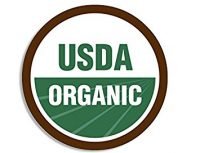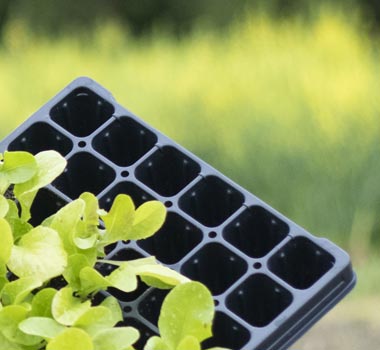Decades of factory farming, monocultural farming, and industrialization have led to a badly-managed and damaged food system. This not only has significant implications for human and community health, but we are also contributing to dire ecological and climate conditions, hollowing out rural economies, and squandering our water and soil, maybe the most precious resources on earth.
Transforming our food system is some of the most important work of our time. The quality of what we put on our fork can transform our world. Carnation Farms has a sense of urgency to make the biggest possible contribution we can to avert a negative future and help create positive changes in our food system. Carnation Farms is a 501c3 nonprofit community-based hub for regenerative food and agriculture that educates and empowers the work of culinary and farming professionals.
Our v1 Regenerative Farming Principles for Carnation Farms (CF) – this is our “stake in the ground”
We are committed to using and fostering farming practices that regenerate the land, produce delicious, nutrient-dense food, and create more resilient food systems.
- Building restorative relationships: We believe regenerative agriculture is about the relationships between soil and plants, livestock and the landscape, and farmers and eaters. We commit to shifting relationships, internally as well as externally to CF, to be collaborative, symbiotic, and synergistic, fostering restorative connections instead of transactional and extractive practices.
- Restoring the relationship between animals and soils: We recognize the importance of animals in regenerative farming. Animals are walking composters that bring biology and fertility back to the earth. We commit to nurturing the relationship between animals and soils, leveraging their natural abilities to re-invigorate the land.
- Keeping living roots in the soil: We understand that keeping living roots in the ground for as much of the year as possible supports soil microbial life and activity. Living roots help build soil organic matter, enhance water infiltration, and sequester carbon. We prioritize the presence of living roots to support all life, both below and above the soil surface.
- Fostering biodiversity: We commit to promoting diversity in all aspects of the farm, including plants, animals, people, and skills. We believe diversity is the key to resilience and aspire to follow nature’s trend of fostering highly diverse ecosystems. By cultivating a broad set of elements, we become more adaptable to unpredictable changes, weather, accidents, and conflicts, creating a system that can recreate and better sustain itself in times of adversity.
- Cover and protect the soil: We recognize the significance of soil cover in regenerative farming. We aspire to keep the soil covered at all times and minimize practices that disturb the soil. Soil cover, through living plants and plant residue, moderates soil temperature, preserves moisture, and encourages soil microbes to flourish.
We believe that Regenerative absolutely and holistically builds on a foundation of Organic. Regenerative practices = Organic + additional, even more nutrition- and climate-friendly, practices. By embracing these regenerative farming principles, we strive to create a future where agriculture regenerates the land, nourishes communities, and creates a more resilient food system.
You might have some other questions like …
… How Important is Soil Management? It all starts with the soil. If we don’t build good soil…the rest doesn’t matter. How do we build great soil?
- We promote biodiversity at the genetic, species, and ecosystem levels.
- We have an extensive crop rotation plan to protect soil fertility and prevent soil diseases.
- We plant cover crops to prevent soil erosion and to protect soil microbial communities.
- We incorporate fallow periods to “rest” the soil.
- We conduct regular soil analysis. This analysis measures soil health as defined by nutrient, organic matter, and biological life levels.
… What about Organic (Carnation Farms has been organically certified for many years)?
- We are Certified Organic by the USDA. This is an important designation for us as it provides third-party objectivity and transparency.
- We are beginning work on our Regenerative Organic certification. Everything regenerative builds on the foundation of being organic. Regenerative = Organic + More
- We save seed to responsibly grow future healthy crops.
- We practice timely watering which reduces environmental impact.
- We incorporate perennials into annual production to ensure protection against soil erosion. Speaking of which …
… How does CF practice Animal Husbandry? We believe in transparency and avoid using marketing terms that are misleading to the public. We encourage you to know your farmer and the source of eggs and meat you eat. While we are beginning the work towards Certified Humane certification for our animals, The Animal Welfare module outlines five freedoms for animal welfare, we abide by and exceed these standards, which include:
- Freedom from hunger or thirst by ready access to fresh water and a diet to maintain full health and vigor.
- Freedom from discomfort by providing an appropriate environment including shelter and a comfortable resting area.
- Freedom from pain, injury, and disease by prevention or rapid diagnosis and treatment.
- Freedom to express normal behaviors by providing sufficient space, proper facilities, and company of the animal’s own kind.
- Freedom from fear and distress by ensuring conditions and treatment that avoid mental suffering.
Our poultry are outside every day with direct access to pasture. Their mobile coops provide plenty of space and are moved regularly to new pastures. They are fed certified organic grains and treats culled from our farm.
… How does CF think about Environmental Stewardship? We consider environmental stewardship a core responsibility. We aren’t perfect, but we have built a responsible foundation and take pride in our annual plan to improve the environment. Examples of our environmental efforts include:
-
- We are Salmon Safe certified and actively involved with regional conservation groups to improve habitat in the river and our land that borders the river. We also measure the size, diversity, and health of our riparian residents and take steps to improve their habitat.
- We are actively engaged in a forest management plan to ensure a healthy future for our 335 acres of forest on the property.
- We are proud operators of an award-winning onsite wastewater treatment facility that has been in operation since 1975. This aerobic process allows us to recycle and then apply reclaimed Class C water on fields that produce hay.
… How does this affect our local economy? Local ingredients don’t just taste good. They also contribute to the local economy, assuring both better food and more profitable farming for future generations. They also help address issues of food access and affordability. It’s a beautiful thing: local farmers grow the food, and our entire community benefits. That’s why we are committed to changing the demand curve for sustainably, regeneratively grown local food and building a value chain that is equitable for all. Our vision is to help create a thriving regional food system connecting farmers and culinary professionals around shared values of regenerative food, health and equity. Why is this critical?
King County Facts –
- The average farmer loses $2,700 per year.
- 56% of our farmers rely on additional income outside of farming in order to support their family and farm operations.
- 13% of adults and 22% of children live in food-insecure households.
Doing good never tasted so good.
- We encourage everyone to grow their own. It doesn’t get more local than this.
- How we prioritize “Local” when selecting food for ourselves and our guests:
- Our Farm: The vast majority of what we serve comes directly from our farm. Hyperlocal is our best choice.
- Our Neighbors: We believe that supporting our neighbors means buying local products. This support ensures fresh products, grows the local economy and reduces food miles.
- Snoqualmie Valley: There are more than 100 farms in the Snoqualmie Valley. We’re proud to support our neighbor farmers.
- King County: There are 1,837 farms in King County. Plenty of great options to choose from.
- Washington State: This supports our regional economy and seasonality.
- Domestic Production: When we can’t find an ingredient that is locally sourced.
- Globally Sourced: For ingredients that are not readily available in domestic production.
- Organic Whenever Possible:
- We grow in a certified organic manner and encourage others to do so when possible.
- How we prioritize when selecting food for ourselves and our guests:
- Certified Organic
- Grown Using Organic Practices
- Non-GMO
- Other Growing Methods only when it is the only source available and transparently disclosed when used.
… And what about Nutrition?
At Carnation Farms we advocate for a balance of whole foods.
We love to show how we grow nutritious, delicious food on our farm and how to easily prepare it at home. Eating better and eating together are such healthy pleasures! Good nutrition isn’t about a rigid prescription or list of do’s and don’ts. It’s about the enjoyment of a broad variety of farm-fresh foods, minimally processed, without a ton of added sugar and salt.
- Vegetables are rich in antioxidants, vitamins, minerals, and, most importantly, flavor! Most Americans don’t eat enough veggies, but with a few good cooking tips, they can boost the colors on their plate and the nutrients in their diet.
- Fruits, such as blueberries, melons, and apples grown on our farm, are nourishing and sweet. And they’re a healthier and more satisfying snack than candy or chips.
- Grains, especially whole grains like the wheat we grow in our fields, provide needed fiber and phytochemicals.
- Meats from animals responsibly raised outdoors, such as our chickens and cattle, don’t just taste better, they also have a richer nutrient profile. We grow an array of beans, from unusual orca beans to the familiar pinto, which are rich sources of protein and fiber, and much easier to prepare than most people imagine.
It’s not that complicated to eat right to prevent disease. The same diet – including these natural ingredients – can cut the risk for cardiovascular disease, high blood pressure, type 2 diabetes, certain cancers, and poor bone health. And, they taste great, especially in your kitchen or at your table, which we believe are the most important parts of any home.

